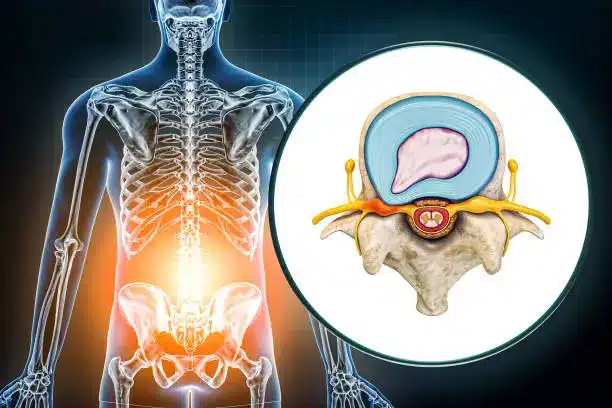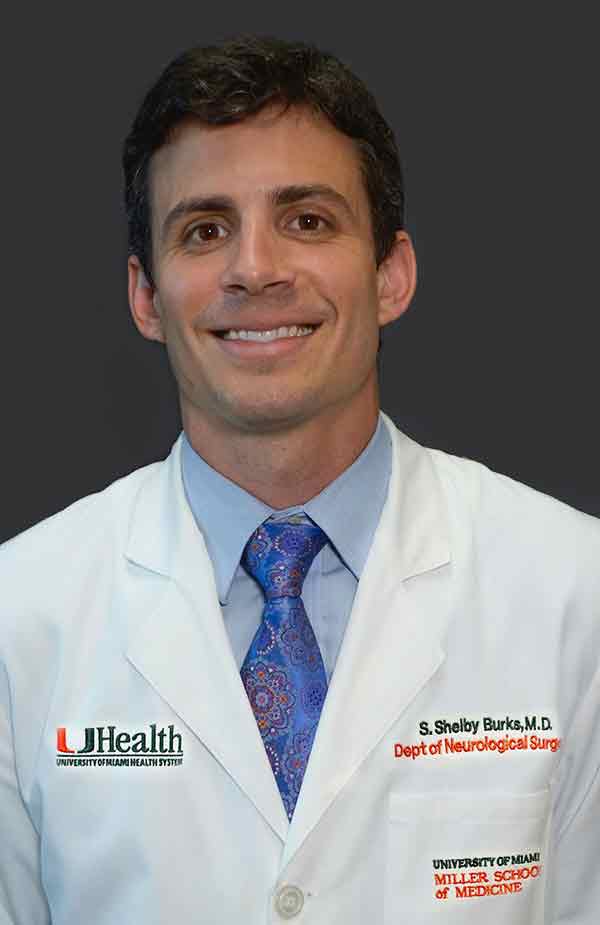1120 NW 14th Street / Miami, FL 33136

Herniated Disc Surgery: Diagnosis, Treatment & Cost
A herniated disc is a spinal condition that typically occurs when the soft, jelly-like center of the disc in the spine, also called the nucleus pulposus, is pushed out. Severe back pain, numbness, and weakness in the neck, back, and legs might result from this condition.Common Causes Or Risk Factors For Herniated Disc
- Age
- Genetics
- Obesity
- Smoking
- Repetitive Lifting Or Twisting
- Sedentary Lifestyle
Symptoms of a Herniated Disc
Here are some of the major symptoms of a herniated disc:- Pain in the lower back & neck
- Numbness and tingling
- Muscle weakness
- Radiculopathy
- Muscle spasms
- Difficulty moving or bending
- Pain that worsens at night or after standing or sitting
- Difficulty with fine motor skills, balance, or walking
- In rare cases, bowel or bladder incontinence
Diagnosis of Herniated Disc
Herniated disc diagnosis typically involves a combination of physical examination and possibly imaging tests. To address pain, muscle strength, reflexes, assess sensation, physical exams are performed, and imaging techniques help to visualize the condition and surrounding structures.Medical History and Physical Exam:
Expert neurosurgeons, such as Dr. Burks, inquire about your symptoms, perform some physical tests, and review the medical history of the injury.Imaging Tests:
- MRI
- CT Scan
- Myelogram
Other Tests:
- Nerve Conduction Studies (NCS)
- Electromyography (EMG)
- X-rays
Non-Surgical Treatments For Herniated Disc
Nonsurgical treatments for herniated discs typically focus on reducing inflammation, pain management, and restoring function, and these treatments include medications, physical therapy, heat and cold therapy, and other nonsurgical treatments such as spinal decompression, chiropractic care, massage therapy, and lifestyle modifications.When is Surgery Necessary?
When conservative treatments such as physical therapy, pain relievers, etc, fail to provide relief, surgery may be considered effective for a herniated disc. Several factors indicate that you might need surgery, such as:- Severe and persistent pain
- Neurological symptoms (numbness, tingling, and weakness)
- Failure of conservative treatment
- Surgery may be necessary if severe symptoms develop suddenly
Types of Herniated Disc Surgery
Dr. Burks offers several advanced surgical techniques according to the needs of each patient's condition. There are several types of herniated disc surgery, including:- Microdiscectomy
- Laminectomy
- Artificial Disk Replacement
- Spinal Fusion
What to Expect During Surgery
Here is what you should expect during herniated disc surgery: Before Surgery: The patient typically undergoes a full pre-operative assessment, and based on these assessments, personalized preparation instructions are provided by the surgeon. During the Procedure:- The surgery is performed under general anesthesia
- Surgery takes 1 to 3 hours, depending on the complexity
- Imaging tools are used for precision
Recovery & Rehabilitation
After herniated disc surgery, recovery involves a multi-step process, which includes: Initial Recovery: Patients resume their light activities within 1 to 2 weeks. Physical Therapy: After surgery, patients start to regain their strength and flexibility. Full Recovery: Within 6 to 8 weeks, patients recover completely. Expert surgeons, such as Dr. Burks, provide personalized postoperative medical care to minimize the risk of recurrence and support long-term spinal health.Cost of Herniated Disc Surgery
The average cost of herniated disc surgery ranges from somewhere around $15,000 to $150,000 or more, depending on numerous factors such as the type of treatment procedure. Factors influencing the cost:- Type of surgery
- Geographic location
- Surgeon's expertise
- Hospital fees
- Pre and post-operative care
- Insurance coverage
- Additional procedures
Why Choose Dr. Burks for Herniated Disc Surgery?
Dr. Burks is a world-renowned neurosurgeon who is dedicated to providing quality medical care and personalized treatment plans according to the unique needs of each patient. With a team of expert surgeons, he has performed numerous surgeries, including herniated disc surgery, with optimal results and faster recovery. Here are some key reasons why you should choose Dr. Burks for herniated disc surgery:- Personalized treatment plans
- Extensive experience and expertise
- Personalized medical care
- Cutting-edge technology

